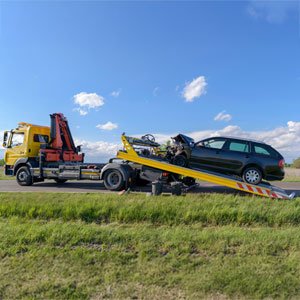Claims Beyond 2 Years After Tortfeasor’s Death May Be Barred
Car AccidentsIn the case of Samantha Elaine Tsuji v. H. Bart Fleet, Case Number 1D20-901 (Fla. 1st DCA August 4, 2021), Florida’s First DCA held that sections 733.702(5) and 733.710(1) of Florida’s Probate Code barred claims brought after more than 2 years after the defendant’s death, even when such claims were for vicarious liability and there was liability insurance. A conflict with Pezzi v. Brown, 697 So. 2d 883 (Fla. 4th DCA 1997) was certified.
2023 Update on the Law
This case was recently upheld by the Florida Supreme Court. Aside from the fact that the makeup of the court has changed significantly in the last few years, substantive tort law in Florida has changed as well. In particular, the statute of limitations for negligence cases in the State of Florida was reduced from 4 years down to to 2 years on March 24, 2023 with the so-called tort reforms that were a legislative priority in the legislative session. Of course, the reasons for the change in the law have absolutely nothing to do with this case. However, the change in the law effectively negates the issue brought forth in this case. Therefore, there may only be very few cases to where this situation even applies and, of course, all cases going forward have a 2 year statute of limitations anyway. A link to the case is here.
Overview of Facts
This case arose from a June 2014 car accident accident. The plaintiffs filed their lawsuit within the standard 4 year statute of limitation for negligence against the driver and his employer. The allegedly negligent defendant was on the job for his employer when he caused the accident, thereby triggering vicarious liability. Shortly after filing their lawsuit, the plaintiffs learned that the driver had passed away a few weeks after the accident.
The employer moved for summary judgment arguing that sections 733.702(5) and 733.710(1), Fla. Stat. require creditors to present claims against a decedent’s estate within 2 years of the decedent’s death. The defense cited Buettner v. Cellular One, Inc., 700 So. 2d 48 (Fla. 1st DCA 1997) for the proposition that a vicarious liability claim is barred when the agent is no longer legally responsible. The Buettner case directly stated that it is “well-settled doctrine that when a principal’s liability rests solely on the doctrine of respondeat superior, a principal cannot be held liable if the agent is exonerated.”
The trial court found that the plaintiffs’ claims were time barred and the Fourth DCA affirmed.
The Fourth DCA also certified a conflict with Pezzi on the question of whether this time bar applies even when liability insurance exists and the plaintiffs agree to seek only the policy limits of insurance rather than collecting from the estate past the 2 year time period. In doing so, the Fourth DCA commented that a citation of approval to Pezzi in May v. Illinois National Insurance Company, 771 So. 2d 1143, 1157 (Fla. 2000) was mere dicta “pure and simple” and that it is not controlling.
In May, the Florida Supreme Court cited Pezzi with approval for the proposition that “the total failure to file a timely claim against an estate does not prevent a creditor from recovering up to the policy limits of a decedent’s casualty insurance.”
Should Insurance Get Off The Hook Because Of A Probate Code Limitation?
Considering that there is now a certified conflict between the First DCA and the Fourth DCA on this issue, there is going to be a difference in the law depending on your jurisdiction until this issue gets resolved by the Florida Supreme Court.
This begs the question whether insurance should get off the hook to pay for accidents where the plaintiffs were unaware that the person who caused the accident passed away until they file a lawsuit and learn that fact from the defense. Plaintiffs generally rely on there being a 4 year statute of limitation for negligence in Florida.
There is a clear argument that effectively shortening this 4 year statute of limitation is unfair just because the person who causes an accident dies well before the expiration of that 4 year statute of limitation. This is particularly true when there is liability insurance. In other words, why should insurance get off the hook just because of a probate code technicality? There really is no public policy argument that can be made to say that insurance should not be responsible for the entire 4 year statute of limitation after negligence, regardless of whether the tortfeasor dies, files bankruptcy, or otherwise ceases to exist.
If and when this issue is taken by the Florida Supreme Court to resolve the certified conflict, perhaps a justiciable result for this case should be that the plaintiffs are allowed to sue the estate for up to the policy limits of insurance beyond the 2 year time bar. Further, the Florida Supreme Court should also consider that a justiciable result for vicarious liability should be vicarious liability also applies for the entire 4 years of the statute of limitation as well because of the word in Buettner “exonerated.”
“Exonerated” means something completely different than “time barred.”
Talk To A Lakeland Car Accident Lawyer About Your Case
The legal system is fraught with pitfalls and technicalities. If you have been injured in a car accident, you should act sooner rather than later for the reasons outlined in this case and others. At Russo Law, we help people who have been injured in car accidents obtain compensation for their injuries. Call us today for a free car accident consultation.


